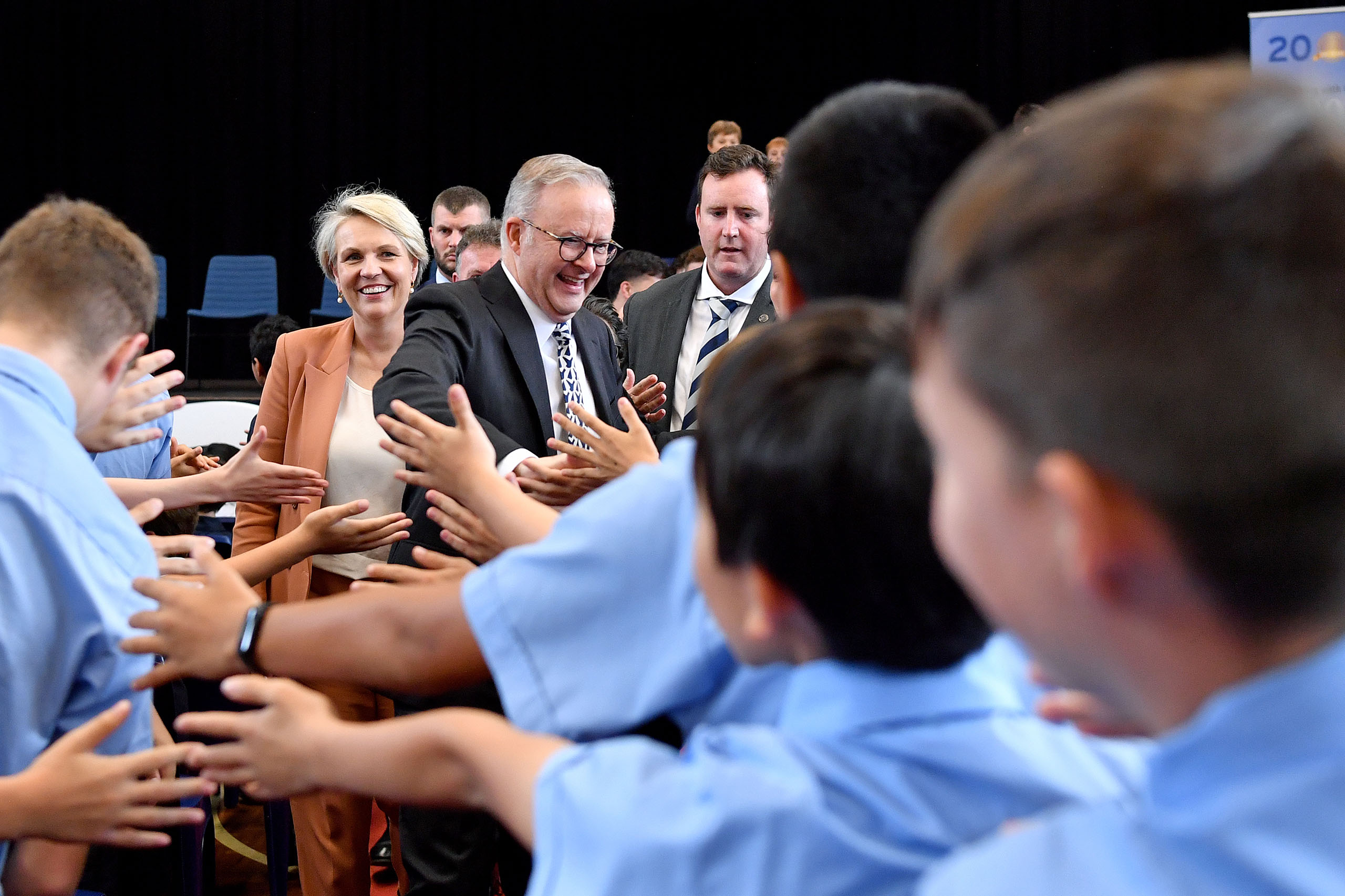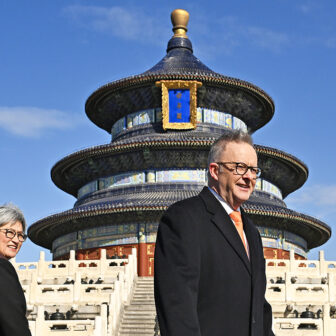As 2023 came to an end commentators’ knives were out for Anthony Albanese. Almost to a person, the scribblers declared him and his government adrift, tired and out of touch — you only had to look at October’s Voice referendum, the response to the High Court’s detainee decision and the ever-present cost-of-living crisis. There were even murmurs of a “one-term government.”
January’s rejigged Stage 3 tax cuts announcement — warmly received in voterland, it seems, and made an ostentatious meal of by the opposition — has turned a new page. Now the political class has all but unanimously declared the return of the prime minister’s mojo. Albanese is in control again, looking and acting confident. But the Dunkley by-election on 2 March could change all that, of course, potentially dramatically.
So what’s the point of these incessant, whiplash-inducing analyses of how the parties and leaders are “travelling”? At core they must be about the next election; they can have no purpose otherwise. But once we’ve voted, this term of government will be viewed through the lens of the 2025 result and all today’s twists and turns will be forgotten. The caravan will move on to how the next election is shaping up.
One popular school of thought sees the media’s incessant horse-race adjudications as self-fulfilling. It is in a party’s interests to be described as being on track for electoral victory because the happy vibes will help it get there. With apologies to Sting, I don’t subscribe to this point of view. The narrative certainly influences reality, even around the edges of opinion poll results, but its effects on elections are usually minor and unpredictable.
The idea matters a lot to politicians and their staffers, though, partly because many of their jobs are dedicated to generating good reviews and partly because those reviews can ultimately affect their professional survival.
Peter Dutton, who was always facing a battle to remain Liberal leader for the full term, went into the summer break looking rather happy, but now he’s biting his nails about Dunkley. Albanese, who as prime minister enjoys more institutional fortification, would be harder to shift in the event of a bad result, but government MPs and staffers still imbibe the commentary. No leader enjoys forlorn troops and nervous backbenchers.
Judgements about how the participants are travelling are largely driven by opinion polls — and most of all, far ahead of the others, by Newspoll in the Australian. The tendency reached a nadir of sorts back in 2015 when Malcolm Turnbull talked about Tony Abbott “losing” all those Newspolls. (Albanese borrowed that formulation on the ABC’s 7.30 this month to point out his government has never “lost” one.)
The first Newspoll of 2024, in early February, found 62 per cent believed the government “did the right thing” by rejigging the tax cuts, with just 29 per cent saying they “should have kept their promise and implemented the tax cuts without changing them.”
Voting intentions and personal ratings were virtually identical to Newspoll’s final 2023 survey, which is widely seen as evidence the government didn’t “take a hit” for breaking that election promise. Along with the problems the decision caused (and will continue to cause) for the opposition right through to the next election, and along with the fact that the government was taking control of its destiny, the figures were enough to make it a “win.”
Just between us, though, Labor was a bit lucky with Newspoll’s phrasing. The fact that the changed policy represented the breaking of an ironclad, repeated promise was hidden in one of the responses, the one very few people nominated.
When another pollster, Redbridge, conducted a big survey at about the same time, it posed several questions about those Stage 3 tax cuts. The first (on page 21) simply asked if the government should stick to its repeated promise not to change them; it received a slight plurality in support of sticking with the cuts designed by the Coalition. The second (page 26) described the reported changes and asked about approval; this time the rejigged policy received large support, rather like that found by Newspoll.
All these pollsters’ questions are valid; the point here is that different wording can produce different headlines. A Newspoll question that resembled Redbridge’s first one would have generated very different perceptions about how the changed policy had been received by punters.
Redbridge also found a decrease in the government’s two-party-preferred support from 52.8 per cent in December to 51.2 per cent in February. Yet despite this “swing” the survey was reported very positively for the government in News Corp tabloids. Perhaps it can be difficult to break from the press gallery consensus.
Note that the prime minister is a bare relic of the figure, a year ago, who could do no wrong. How might voters have reacted if he’d announced these changes back then? He might well have taken that “hit” from those sky-high poll numbers. We’ll never know.
Broken election promises are as old as politics itself. From electors’ point of view Albanese is now just another politician; perhaps he had already become one last year. All prime ministers end up like that. “My word is my bond” is henceforth a punchline, like “Honest John” Howard in a previous era.
Like his predecessors, the prime minister is relying on the allure of incumbency: yes, I’m less than honest at times but I get the job done; I make the hard calls for the nation, and that’s what matters.
He even trotted out, also on 7.30, the sense of “trust” reclaimed by both Howard (in 2004) and Gillard (2012). “Australians,” he told Sarah Ferguson, “can trust me to be prepared to have the strength to take the right decisions that are needed.”
It was an overly long sentence, with spits, starts, lulls and twists, but he got there eventually. Rather like the government’s path to Stage 3 Mark II. •





